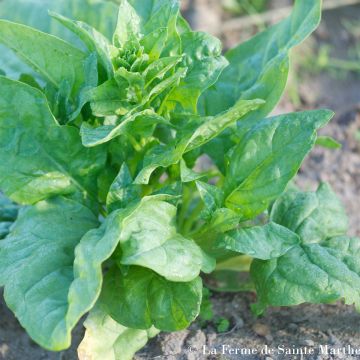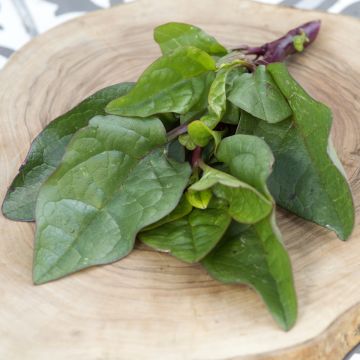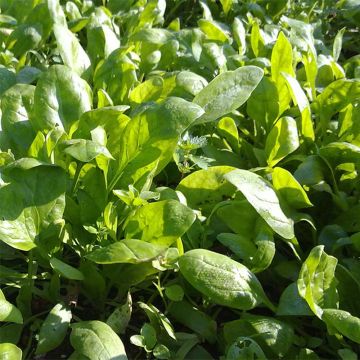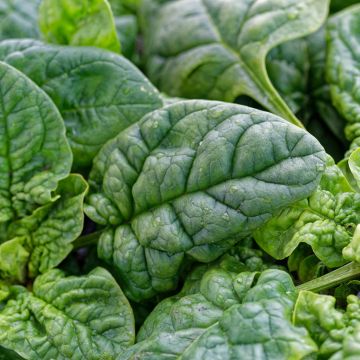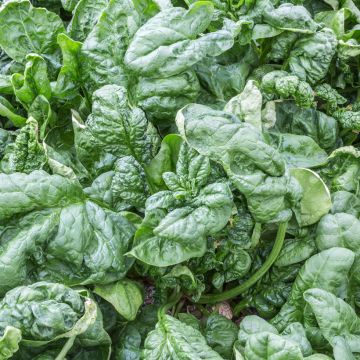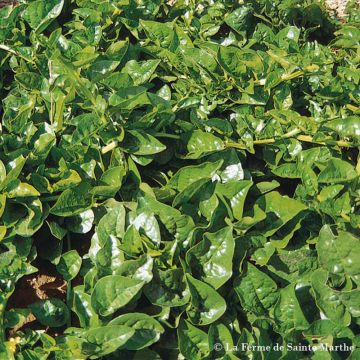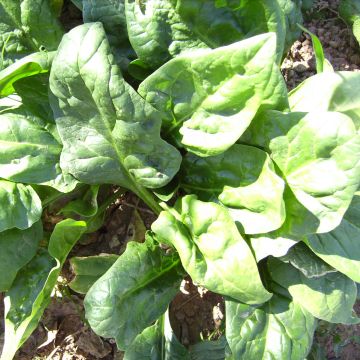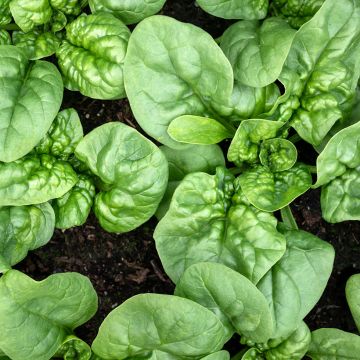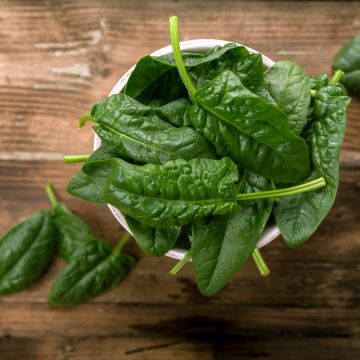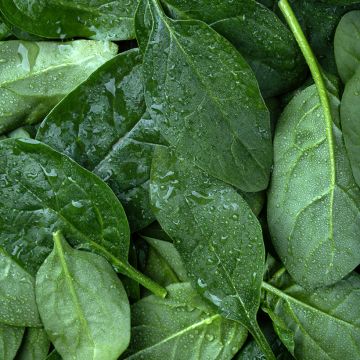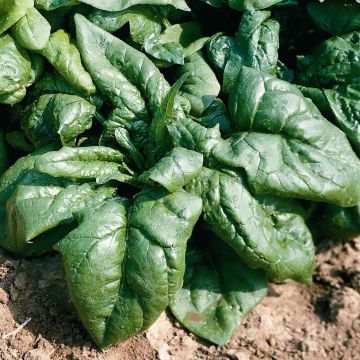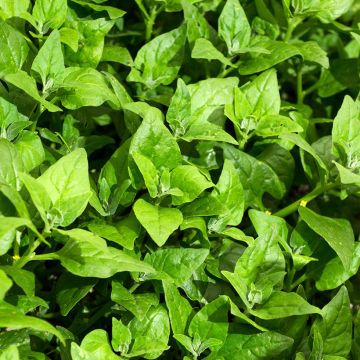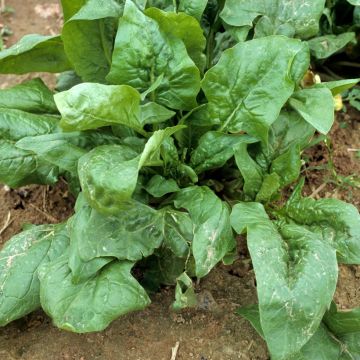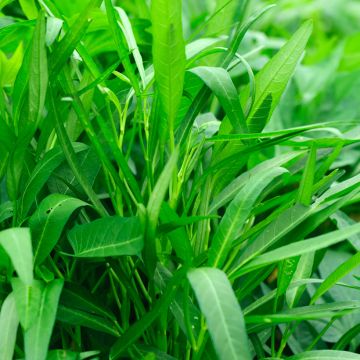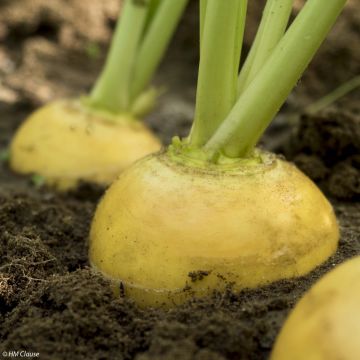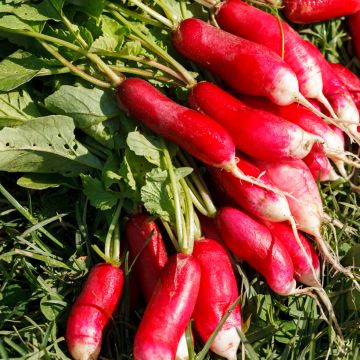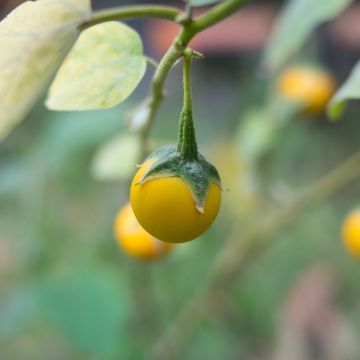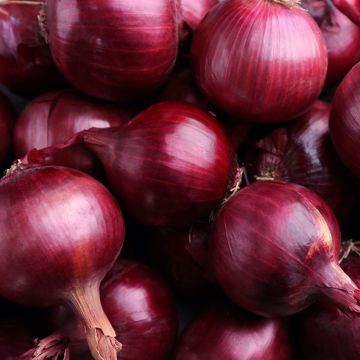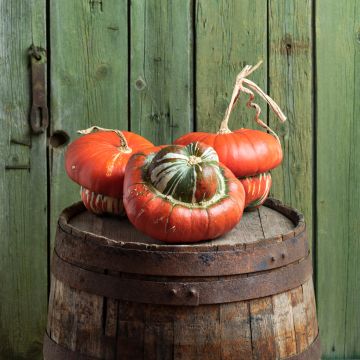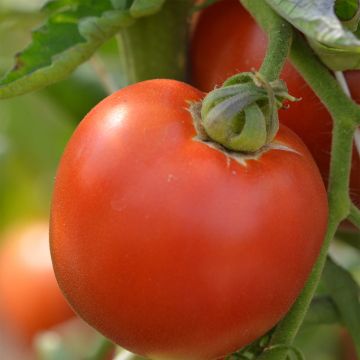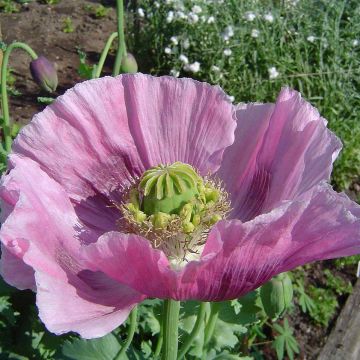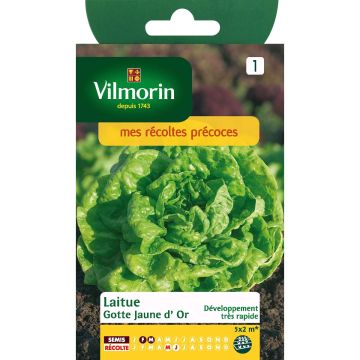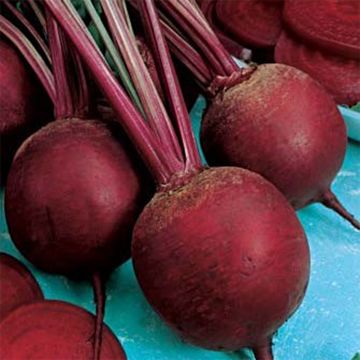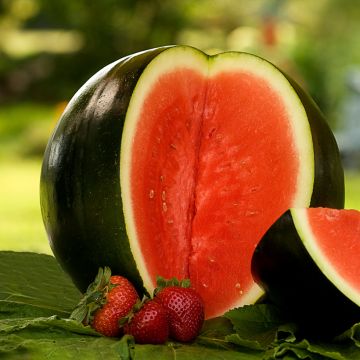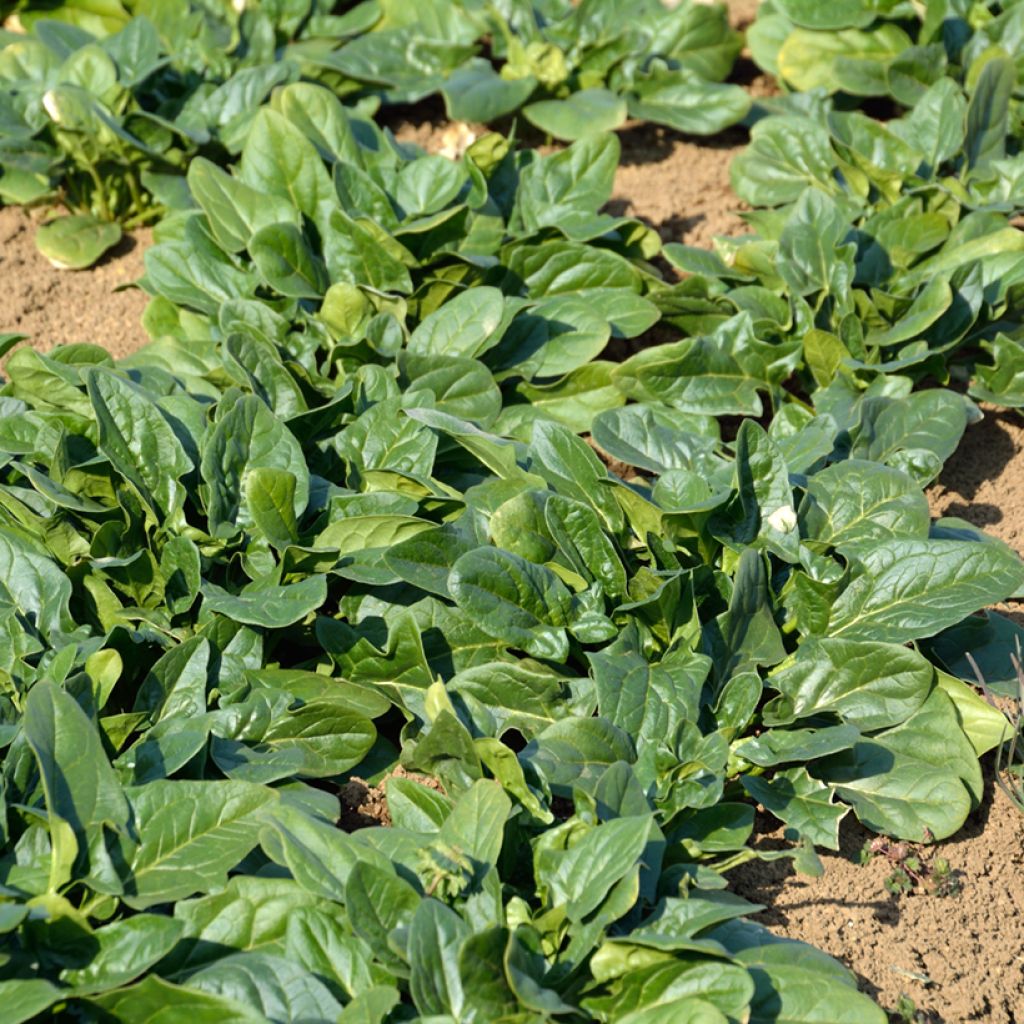

Beet, Perpetual Chard - Beta vulgaris
Beet, Perpetual Chard - Beta vulgaris
Beta vulgaris Perpetual
Beet, Beetroot
Perennial variety: less work!
Frédérique J., 14/11/2018
Why not try an alternative variety in stock?
View all →This plant carries a 6 months recovery warranty
More information
We guarantee the quality of our plants for a full growing cycle, and will replace at our expense any plant that fails to recover under normal climatic and planting conditions.
Seed-only orders are dispatched by sealed envelope. The delivery charge for seed-only orders is €3.90.
Description
The Perpetual Spinach (Beta vulgaris) is a biennial variety that, when cultivated as an annual spinach, does not run to seed, even in drought. It is vigorous, productive, and delicious. Sow in March - April and September - October for a harvest from May to January.
This variety, commonly grown in the United Kingdom, is well adapted to our climates and has been rewarded by the prestigious RHS Society.
Traditionally mistreated by school catering services, spinach is undoubtedly the most feared vegetable by children. Yet, it is a tasty herb that can be enjoyed in many ways: raw in spring salads, in Japanese fritters, quickly cooked in a wok, or even in a savoury tart with small pieces of goat cheese.
Originally from Iran and belonging to the Chenopodiaceae family, like Beet and Chard, Spinach is widely cultivated worldwide for its flavour and nutritional qualities. While the famous Popeye long praised its iron content, it is especially remarkable for its vitamin B9 content.
Many varieties of spinach require either short or long days to prevent them from running to seed too quickly. Each variety corresponds to a specific research area that must be respected: spring, autumn, winter, and even summer. Some varieties have pungent seeds, traditionally intended for spring or late autumn sowings. Thus, by carefully choosing your seeds, you can have this vegetable all year round.
Spinach appreciates consistent, moist, rich soils exceptionally high in nitrogen and potash. They thrive in winter sunlight, partial or even full shade in summer and the hottest regions.
Harvest: Spinach is harvested leaf by leaf, according to their growth and needs. The outer leaves are cut, allowing the heart to continue developing and producing new leaves. The whole plant is only harvested when it shows the first signs of running to seed.
Storage: Spinach does not keep very well in the refrigerator as it tends to wilt. It is best to consume it within a few hours after harvesting. However, you can freeze it after blanching it for 3 minutes in salted boiling water.
Gardener's tip: Did you know spinach can be used as a green fertiliser? Sown in autumn at a rate of 30 grams per square metre, it can absorb and store nitrogen in the soil. This way, it is preserved and not leached by winter rains. An excellent way to recycle a forgotten packet of seeds past its expiration date!
Report an error about the product description
Harvest
Plant habit
Foliage
Botanical data
Beta
vulgaris
Perpetual
Chenopodiaceae
Beet, Beetroot
Cultivar or hybrid
Annual
Other Spinach seeds
Planting and care
The germination of the spinach occurs at a temperature of around 16 °C (60.8°F). The emergence generally takes about fifteen days.
The sowing is done directly in the ground (one to two months before under a Nantes tunnel for early varieties), in the sun, in partial shade or shade, depending on your climate.
Follow the recommendations for the sowing period. Otherwise, your plants may prematurely go to seed.
On fairly firm soil, lightly rake and trace furrows spaced 35 to 40 cm (14 to 16in) apart, with a depth of one to two centimetres. Sow in rows, spacing the seeds 5 cm (2in) apart. After emergence, thin out, keeping only one plant every 40 cm (16in).
Since spinach is best when fresh, don't hesitate to stagger your sowings over time to enjoy a more extended harvest.
Cultivation:
Spinach is a fairly demanding vegetable, especially regarding nitrogen and potassium. It requires well-rotted soil. It is advisable to apply mature compost (about 3 kg per m2) by lightly digging to a depth of 5 cm (2in), preferably in autumn, after having, as for any vegetable crop, thoroughly loosened the soil. Applying nitrogen-rich fertilisers such as "blood, fish and bone" is often beneficial. It prefers neutral to slightly acidic soils (pH between 5.5 and 7).
Some spinach varieties are susceptible to downy mildew, a fungal disease in mild and humid weather. Make sure not to sow too densely to keep the crop well-aerated. You can spray a fungicide solution as a curative measure, but crop rotation remains the best prevention.
Regarding companion planting, spinach is a good neighbour that does not harm any other vegetable. Its association is even considered favourable with Cauliflower, Cabbage, Potato, and Radish as it enhances their yields. An exceptional gardener, Gertrude Franck, used to interplant a row of spinach between each row of vegetables, which served both for cooking and as green manure.
Seedlings
Care
Intended location
-
, onOrder confirmed
Reply from on Promesse de fleurs
Vegetable seeds
Haven't found what you were looking for?
Hardiness is the lowest winter temperature a plant can endure without suffering serious damage or even dying. However, hardiness is affected by location (a sheltered area, such as a patio), protection (winter cover) and soil type (hardiness is improved by well-drained soil).

Photo Sharing Terms & Conditions
In order to encourage gardeners to interact and share their experiences, Promesse de fleurs offers various media enabling content to be uploaded onto its Site - in particular via the ‘Photo sharing’ module.
The User agrees to refrain from:
- Posting any content that is illegal, prejudicial, insulting, racist, inciteful to hatred, revisionist, contrary to public decency, that infringes on privacy or on the privacy rights of third parties, in particular the publicity rights of persons and goods, intellectual property rights, or the right to privacy.
- Submitting content on behalf of a third party;
- Impersonate the identity of a third party and/or publish any personal information about a third party;
In general, the User undertakes to refrain from any unethical behaviour.
All Content (in particular text, comments, files, images, photos, videos, creative works, etc.), which may be subject to property or intellectual property rights, image or other private rights, shall remain the property of the User, subject to the limited rights granted by the terms of the licence granted by Promesse de fleurs as stated below. Users are at liberty to publish or not to publish such Content on the Site, notably via the ‘Photo Sharing’ facility, and accept that this Content shall be made public and freely accessible, notably on the Internet.
Users further acknowledge, undertake to have ,and guarantee that they hold all necessary rights and permissions to publish such material on the Site, in particular with regard to the legislation in force pertaining to any privacy, property, intellectual property, image, or contractual rights, or rights of any other nature. By publishing such Content on the Site, Users acknowledge accepting full liability as publishers of the Content within the meaning of the law, and grant Promesse de fleurs, free of charge, an inclusive, worldwide licence for the said Content for the entire duration of its publication, including all reproduction, representation, up/downloading, displaying, performing, transmission, and storage rights.
Users also grant permission for their name to be linked to the Content and accept that this link may not always be made available.
By engaging in posting material, Users consent to their Content becoming automatically accessible on the Internet, in particular on other sites and/or blogs and/or web pages of the Promesse de fleurs site, including in particular social pages and the Promesse de fleurs catalogue.
Users may secure the removal of entrusted content free of charge by issuing a simple request via our contact form.
The flowering period indicated on our website applies to countries and regions located in USDA zone 8 (France, the United Kingdom, Ireland, the Netherlands, etc.)
It will vary according to where you live:
- In zones 9 to 10 (Italy, Spain, Greece, etc.), flowering will occur about 2 to 4 weeks earlier.
- In zones 6 to 7 (Germany, Poland, Slovenia, and lower mountainous regions), flowering will be delayed by 2 to 3 weeks.
- In zone 5 (Central Europe, Scandinavia), blooming will be delayed by 3 to 5 weeks.
In temperate climates, pruning of spring-flowering shrubs (forsythia, spireas, etc.) should be done just after flowering.
Pruning of summer-flowering shrubs (Indian Lilac, Perovskia, etc.) can be done in winter or spring.
In cold regions as well as with frost-sensitive plants, avoid pruning too early when severe frosts may still occur.
The planting period indicated on our website applies to countries and regions located in USDA zone 8 (France, United Kingdom, Ireland, Netherlands).
It will vary according to where you live:
- In Mediterranean zones (Marseille, Madrid, Milan, etc.), autumn and winter are the best planting periods.
- In continental zones (Strasbourg, Munich, Vienna, etc.), delay planting by 2 to 3 weeks in spring and bring it forward by 2 to 4 weeks in autumn.
- In mountainous regions (the Alps, Pyrenees, Carpathians, etc.), it is best to plant in late spring (May-June) or late summer (August-September).
The harvesting period indicated on our website applies to countries and regions in USDA zone 8 (France, England, Ireland, the Netherlands).
In colder areas (Scandinavia, Poland, Austria...) fruit and vegetable harvests are likely to be delayed by 3-4 weeks.
In warmer areas (Italy, Spain, Greece, etc.), harvesting will probably take place earlier, depending on weather conditions.
The sowing periods indicated on our website apply to countries and regions within USDA Zone 8 (France, UK, Ireland, Netherlands).
In colder areas (Scandinavia, Poland, Austria...), delay any outdoor sowing by 3-4 weeks, or sow under glass.
In warmer climes (Italy, Spain, Greece, etc.), bring outdoor sowing forward by a few weeks.

































